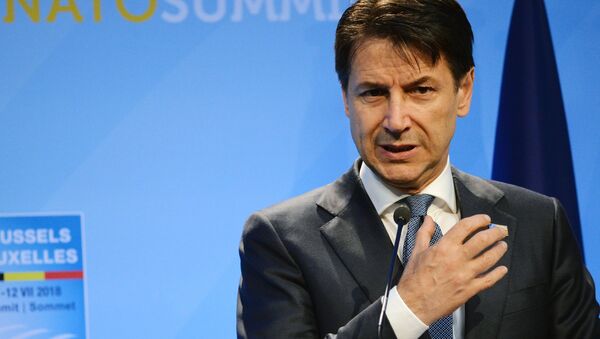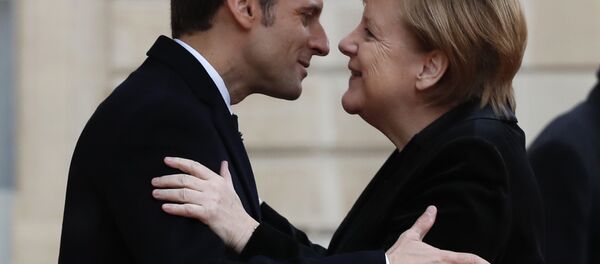"[That provision] is not a legal obligation, but a foreign policy goal that squeezes out Europe… It has always been supposed that [the seat in the UNSC] will be granted to Europe, hasn't it?… The UNSC represents a structure where the WWII victors have a veto. Did Germany lose or win WWII?" Conte said in an interview with Italy's Corriere della Sera newspaper.
READ MORE: Analyst: France and Germany Need to Prove Aachen Treaty Serves Whole of EU
He recalled that Italy had consistently supported the idea of granting a seat on the UNSC to the European Union as a whole.
Later in the day, however, German government spokesman Steffen Seibert addressed the issue, saying that a friendship agreement between Germany and France is not directed against anyone.
"We have repeated many times that this treaty is not directed against anyone and does not in any way affect our intensive partnership and friendship with other European states. On the contrary, the treaty provides for a more intensive French-German partnership to serve the European cause, which is known to all our European partners," Seibert told a briefing.
Commenting on Conte’s speech, he noted that Germany had aspired for a seat of permanent membership in the UNSC for a long time, and the Aachen treaty read that the two states would represent "the European position" on global international crises in the council.
The Treaty of Aachen
In June 2018, the UN General Assembly gave Germany temporary membership in the UNSC for the 2019-2020 period along with four other countries. In December, German Foreign Minister Heiko Maas suggested that the UNSC should be reformed, pointing to Germany's growing role in the world.
READ MORE: Franco-German Proposal on Refugees 'is to Neutralise Some EU Countries' — Prof
The Treaty of Aachen, based on the Elysee Treaty of friendship of January 22, 1963, provides for expanding the cooperation between Paris and Berlin in such fields as policy, the economy, defence, security, culture and interaction between societies.



